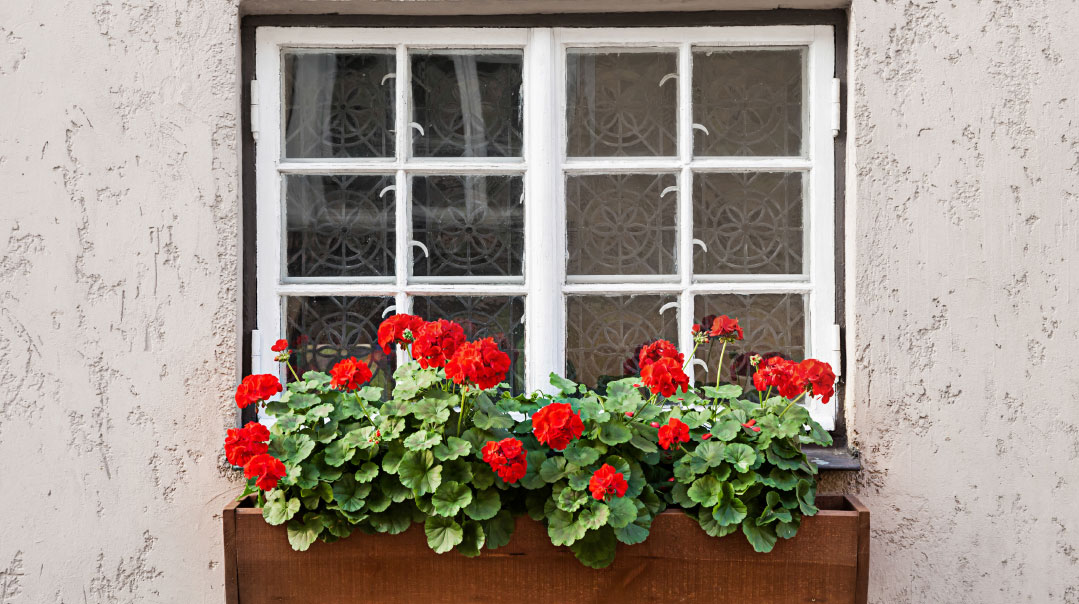Good Enough
| February 5, 2020When I heard people comment that their house was “such a mess,” I’d shrug inwardly. I couldn’t relate

Dear Daughter,
Ironically, now that you`re a married woman and out of the house, we’re even closer than before. And maybe that`s why I feel it`s the right time to explain (apologize? rationalize?) why for all of those years of your childhood I wasn`t the housewife and homemaker I’m starting to be today.
It may sound strange, but when you’d rush around before school with a mop, cleaning the floors so that they’d look decent for your friends who’d be coming over after school, I just accepted the situation. I never got rid of all the dishes drying on the counter, and most of the time there was a good selection in the sink. Somehow, I never felt the home was mine. That is, mine to be proud of.
When I heard people comment that their house was “such a mess,” I’d shrug inwardly. I couldn’t relate. My pride was my children, my husband, my teaching, striving for greater spiritual heights, for more kavanah in tefillah, for more knowledge of halachah… what did the house have to do with all that?
It wasn`t that the house was neglected — we did, after all, have a cleaning lady every Friday. Somehow, the house became her territory. I enjoyed new things, but never gave much thought to prettying up the house, even when friends spoke about decorating their homes with new ornaments or investing in new dishes.
Each year I’d review my Rosh Hashanah resolutions, always dreading the moment when I’d realize that last year’s resolutions would appear on this year’s list as well. There was the kabbalah about not talking too much and disturbing my husband`s learning, the well-worn kabbalah about remembering brachos, the kabbalos of how I’d learn halachah and join a shemirat halashon group, and the one about curbing my habit of interrupting people. I would even try to smile before my 7 a.m. coffee. None of my kabbalos ever included anything about being neater, more organized, or keeping floors clean.
I remember occasionally poking my head into the bathrooms and deciding that I’d clean them each Tuesday. This new resolution never lasted very long; soon enough I’d be back to my habit of quietly squashing the housewife inside me.
I’m not sure how this came to be. Is it simply because growing up, cleaning was never my responsibility? I was supposed to clean my own bathroom, but I found it much more interesting to try to use tweezers to remove clumps of “goo” from the drainage pipes. (Truthfully, I still think it’s more fun to remove blockages with a metal snake or successfully change a leaking faucet handle than to polish the windows!)
Perhaps the reason I never focused on improving my environmental habits was because I considered cleaning an unimportant, trivial area, especially when compared with, say, testing my boys on the mishnayos they’d learned.
In England, we’d never complimented each other for being “clean” like the Israelis do. My parents prioritized their chesed: caring for babies whose mothers were sick, hosting young people for Shabbos, and having an open home for friends, relatives, or any lonely person. Keeping tidy was never a subject of discussion.
When I was privileged to start my own home, I was so busy — first as a student, and then with all of you children. We looked into schools and searched for the right educational environment. Then came the years of questions and of change, of trying to give you kids a feeling that life needed purpose, that even “free” time should not be aimless. We wanted our home more focused on Torah, and that meant no TV, more stringent kashrus, more shiurim, different clothes.
Abba gradually became more and more involved in his learning. To my immense joy, he used his time (and sacrificed his sleep) to attach himself to this most valuable of gifts. And throughout, I was far away from the windows, the dusting.
But a home of harmony we did have, dear daughter, and we were, and are, happy. Abba never pushed me to do a bit more — he just used to come home from work and go finish the dishes in the sink.
So when did the change begin? I think it was after you all got married. I suddenly realized that all my energy had been fueled in one direction. There was the energy spent trying to be “better and better,” climbing a spiritual ladder that never ended. There was the energy spent reciting Tehillim, which I’d started saying years ago, with enthusiasm, adding more and more, until eventually I realized I was forcing myself to say them; something inside me was not connecting. There was the energy spent leaving the house to attend a full morning of shiurim. I’d begun with such zeal, yet now it was a struggle to stay awake in the lectures.
But I couldn`t stop going. If there was an evening of spiritual lectures, I had to go, while your father, surely the better psychologist of us two, would look at me with the Are you sure? expression on his face. My conscience overrode the homemaker in me. It was a must. Everything was a must.
Then one year, after a particularly trying period of illness in the family, I looked at my old familiar resolutions and something unfamiliar stirred inside of me. Maybe for the sake of my family, it was time to put my conscience aside and decide that my kabbalah of this year would be not to have any of the old kabbalos. Perhaps this is what I really needed.
Was it possible that I’d been going for some time now in the wrong direction, squeezing out all the goodness in my quest for perfection?
At first, I was shocked by my own heresy. After all, yearning for perfection was my hallmark. And in which sefer would one be instructed to minimize or quash or limit such lofty spiritual aims? And where does it say that you are allowed to reduce the amount of Tehillim that you’ve said for so long, even if you are burnt out?
I shared my thoughts with ever-patient Abba. His joy at my newfound realization was palpable. He immediately volunteered to go to the Rav and have all my “extra commitments,” as he dubbed them, annulled by Hatarat Nedarim.
More heresy, more guilt. All those lectures on teshuvah, the current turbulent times, and I`m shaking off my shiurim and my Tehillim? What about my Thursday group? “Well, you do have to keep running it, even if we divide the Tehillim among other people,” commented the lady in charge, not a little surprised at my unexpected resignation.
But then I remembered something a rav had told me years earlier. I had listened but not absorbed. “You don’t need Elul,” he’d said. “For you, every day is Elul.” I was shaken to the core. I needed to step down. I knew it would be excruciatingly difficult—but the relief I could almost feel was tantalizing.
And you, dear daughter. You’d always said Ima, I wish I had your sheifus, your urge to grow…but now, it was clear that you were utterly thrilled that your Ima was coming down to earth. You, with your joie de vivre, your eye for aesthetics, and your neat piles of clothing in the cupboards, you needed me to value those as well.
How can there be such a thing as “good enough?” I’d agonize. “We must grow and keep on growing.” Abba would smile and reassure me. “You aren`t giving up, you’re just rounding off the corners. Good enough!”
It took time, but as this new phase gathered momentum, I felt a slow surge of happiness that grew stronger every day. Hashem would accept me the way I was, I didn’t have to keep on climbing — at least, not for now.
I tipped out the contents of my wardrobe and stood staring at my closet, for the first time planning the space so that important items would be accessible and others removed. I looked around my home and decided one evening that I’d try and keep the counters neater. It was an effort that didn’t come naturally.
I decided to take your advice and remove the clutter from just one side of the kitchen. Slowly the room began to look better. I told myself that I would not have a new kitchen until I proved that I could keep the old one at least a modicum neater.
One day, someone commented that we have a lovely apartment. I looked around and realized that that was true. From my newfound place of joy, I made a Rosh Hashanah resolution. I went and bought two window boxes of flowers: red geraniums and orange marigolds, like I used to grow in England.
I wake up in the mornings and check for new buds. And I think—no, I know—that I`m on the right course.
(Originally featured in Family First, Issue 679)
Oops! We could not locate your form.













